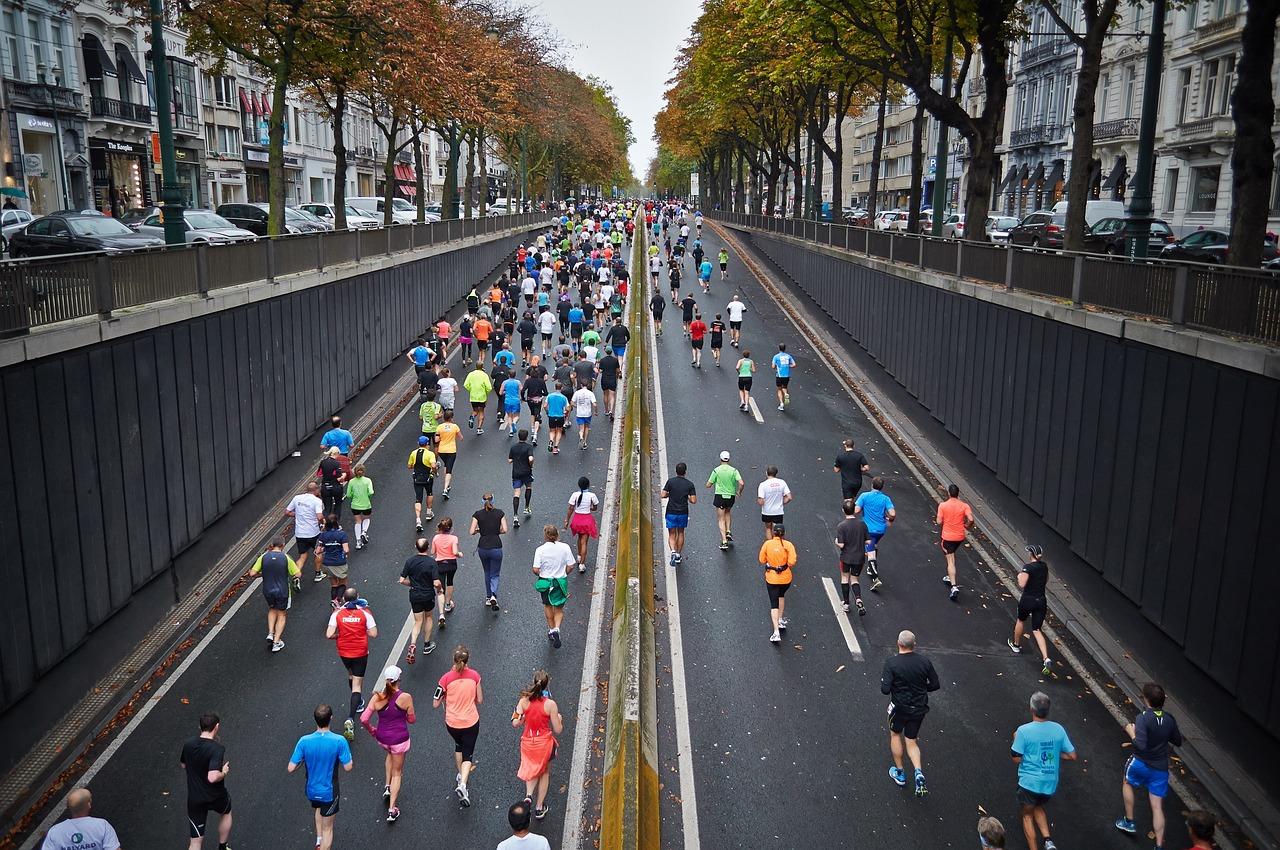Sport has the power to change the world.
Nelson Mandela
Key Takeaways
Sport is not just a great way to maintain physical health, it offers many wider-reaching benefits, such as:
- Creating a shared sense of pride among people.
- Fostering national unity and a sense of belonging.
- Promoting gender equality.
- Encouraging acceptance and inclusivity.
Sport has long been recognised as a powerful tool for fostering unity and national identity. It has the ability to bring people together, transcending social, cultural, and economic barriers.
In this article, we will delve into the crucial role that sport plays in nation building, examining its historical significance, social and cultural impact, economic benefits, and its potential for promoting gender equality.
By exploring various case studies and initiatives, we will highlight the power of sport in unifying a nation and creating a sense of pride and belonging among its citizens.

Historical Examples of Sport's Impact on Nation Building
Throughout history, sport has played a significant role in fostering nation building. The ancient Olympics in Greece, for example, brought together athletes from different city-states, fostering a sense of unity and shared identity. Similarly, the inclusion of sport in the modern Olympic Games serves as a testament to its ability to bring nations together on a global stage.
In more recent times, South Africa's triumph in the 1995 Rugby World Cup became a symbol of unity and reconciliation in the post-apartheid era.
These historical examples demonstrate the power of sport in transcending political divisions, uniting people under a common goal.
Sport has the unique ability to transcend cultural barriers, fostering a sense of belonging and pride among individuals..
It provides a platform for people from diverse backgrounds to come together and engage in shared experiences. Whether it's cheering for a national team or participating in a local sports club, sport has the potential to create a sense of community and identity.
Moreover, it can promote integration by breaking down stereotypes and promoting understanding and respect among different groups. By celebrating diversity and promoting inclusivity, sport can contribute to the social make up of a nation and strengthen its cohesion.
Economic Benefits of Investing in Sports Infrastructure
Investing in sports infrastructure not only enhances a nation's sporting capabilities but also brings about significant economic benefits. The construction of stadiums, sports complexes, and training facilities creates jobs and stimulates local economies. Sporting events, such as international tournaments and championships, attract tourists, boosting the hospitality and tourism sectors.
In addition, sports-related industries, including sports equipment manufacturing, sports media, and sports tourism, contribute to economic growth. By investing in sports infrastructure, nations can reap the economic rewards while also providing their citizens with top-class facilities to support their athletic aspirations.

The Role of Sports in Fostering National Identity and Unity
There are four key ways in which sport can improve nation building, and we'll look at each of these below.

Sports Diplomacy and its Impact on International Relations
Sports diplomacy is the use of sport as a tool to bridge divides and encourage peaceful relations between nations. It has the capability to transcend political and cultural differences, creating opportunities for dialogue and understanding.
Sporting events, such as the Olympic Games and the FIFA World Cup, provide platforms for nations to come together and engage in friendly competition. Through sports, countries can build bridges, establish diplomatic relationships, and promote peace. Even power sports like motorbike riding creates social cohesion between participants.
Moreover, general sports exchanges and collaborations can foster cultural understanding and break down stereotypes, contributing to greater harmony and cooperation in international relations.

If you're interested in developments in sports, read all about technology in sport here.
Case Studies of Successful Sport-Based Initiatives
Several nations have successfully used sport as a tool for shaping their nation. One such example is Brazil, which hosted the FIFA World Cup in 2014. The tournament not only showcased Brazil's passion for football but also highlighted its cultural diversity and national pride. Similarly, Australia's successful bid for the Sydney Olympics in 2000 brought the nation together, promoting a sense of unity and showcasing Australia's sporting prowess.
India, being a country with a high population density, faces significant challenges in providing adequate opportunities for recreation and development for its citizens, particularly those living in slums. However, several initiatives have emerged that aim to use sport as a tool for social change and empowerment. One such initiative is the Power of Play programme in India, which seeks to increase the participation of marginalised children and youth in quality sport programmes.
The initiative recognises that sport has the potential to not only promote physical health but also foster important life skills such as teamwork, discipline, and resilience. By providing access to structured sport activities, the programme aims to equip adolescents from disadvantaged backgrounds and improve their overall well-being. Another successful initiative is Project KHEL, which utilises sports as a means to address the challenges faced by youngsters living in urban slums. As urbanisation continues to shrink spaces for recreation, Project KHEL creatively finds new uses for slices of neighbourhoods, parks, and fields.
By using these spaces effectively and implementing sports-based programmes, they are able to provide a safe and engaging environment for children. Through sports activities, Project KHEL aims to infuse values such as gender equality, inclusivity, and environmental sustainability among them.
These case studies demonstrate how sport can be harnessed to create a positive national image and unite a nation under a shared identity.
The Benefits of Sport in Physical Activity

Physical activity plays a crucial role in maintaining a healthy lifestyle, and one of the most effective ways to engage in physical activity is through sports. Sports offer a range of benefits, not only for individuals but also for the sustainable development of a country. One of the key advantages of sports in exercising is its ability to promote a sustainable lifestyle.
By participating in sports, individuals are encouraged to engage in regular exercise, which contributes to their overall health and well-being. This can lead to a reduction in healthcare costs and a decrease in the burden on healthcare systems, making it a sustainable solution for individuals and society as a whole.
In addition to promoting sustainability, sports also have numerous benefits for children. Engaging in sports from a young age helps them develop essential skills such as teamwork, discipline, and perseverance. These skills not only contribute to their success in sports but also translate into other areas of their lives, such as academics and personal relationships.
Participating in sports improves physical fitness and reduces the risk of obesity and other chronic diseases. By encouraging teenagers to participate in sports, we are investing in their future and ensuring a healthier and more active generation. The benefits can extend beyond individuals to the country as a whole.
An active population leads to increased productivity and reduced healthcare costs, which ultimately contribute to the economic development of a country. Additionally, investing in sports facilities and infrastructure creates job opportunities and boosts the tourism industry. This not only generates revenue but also enhances the country's image on an international level.
Sport continues to play a crucial role in nation building, forging unity, promoting national identity, and contributing to social and economic development. Its ability to transcend barriers and bring people together is unparalleled. By investing in sports infrastructure, promoting inclusivity, and harnessing the power of sports diplomacy, nations can leverage the potential of sport to strengthen their collective essence and build a stronger, more united nation. As we look to the future, it is clear that sport will remain a valuable tool for contributing to a more inclusive, prosperous, and harmonious society.
Let us continue to recognise and support the crucial role of sport and strive to create a world where the power of sport is employed to its fullest potential.
Unity is strength... When there is teamwork and collaboration, wonderful things can be achieved.
Mattie Stepanek
Find your role in a team and try out a free lesson with one of our Superprof personal trainers who will work with you and show you why investing in sporting facilities is the right way to go to build your identity in the sports realm. Our Superprof tutors will also encourage children and teens to participate in sports due to their numerous benefits.
Which sport do you think brings South Africans together the most?
Summarise with AI:

























